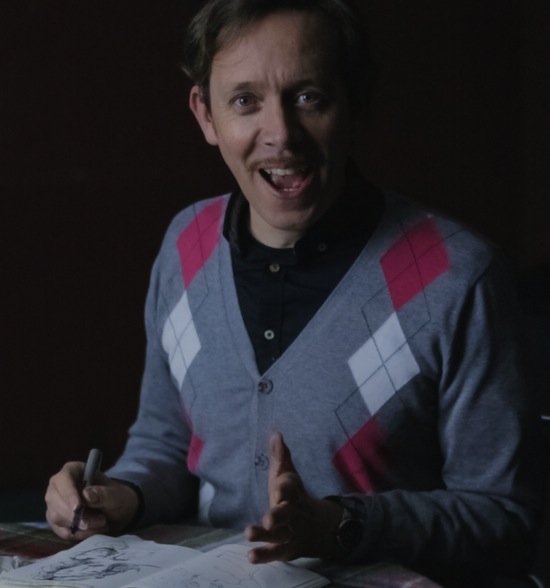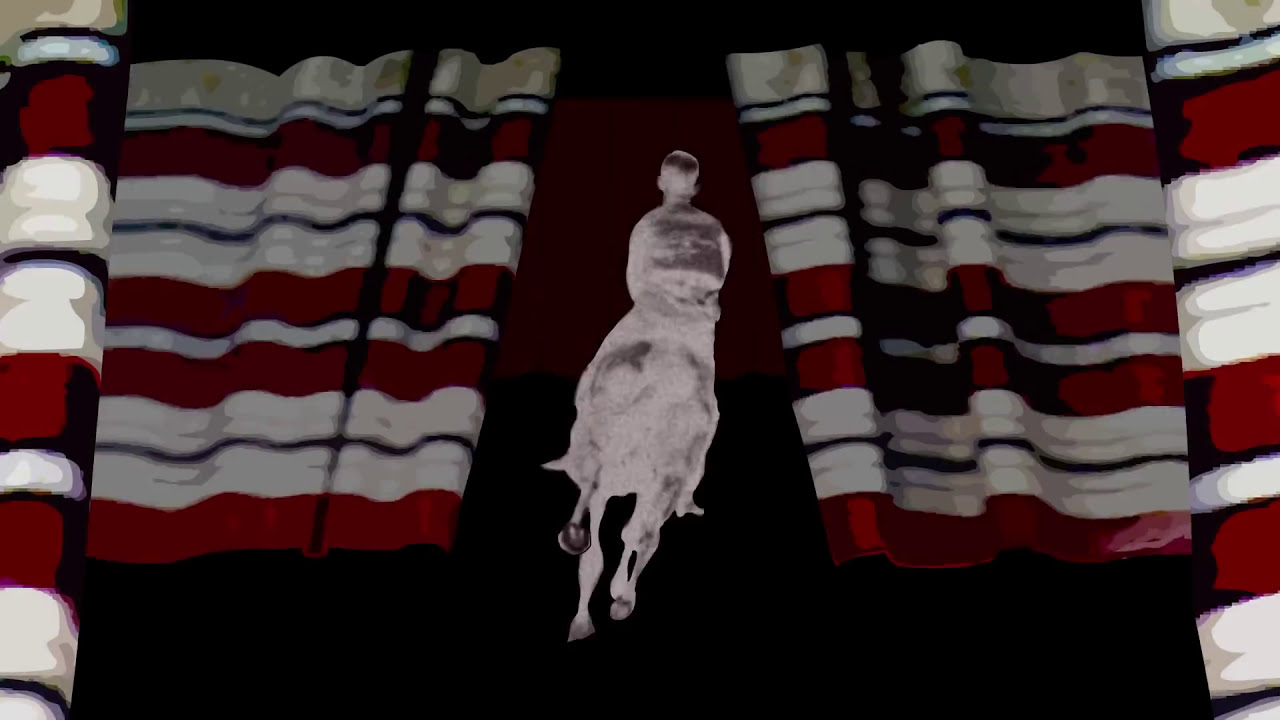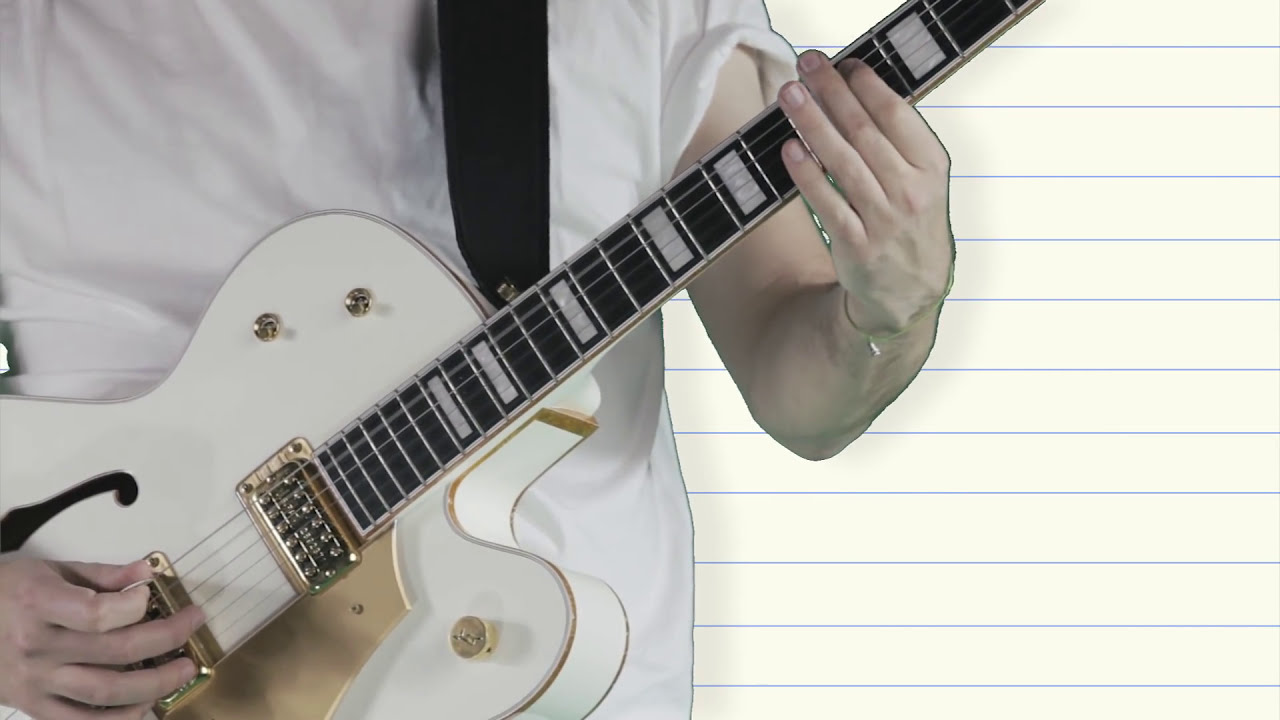"I can’t control everything I put in my songs," declares Mikey Georgeson. "People talk about how in life they embarrass themselves by revealing their personality too much. And in a song you can do that freely! I don’t really have a poker face in songs. It’s like I write the song to find out what I’m thinking. It comes from another realm, I guess."
Those familiar with Georgeson’s work know that ‘other realms’ are very much a part of it. Speaking to the NME in 1996, he described his band David Devant & His Spirit Wife as "Somewhere around 1973, pop could have gone somewhere else, and I think that we are at the end of one of those corridors that has been neglected." Echoing this vision were two full-lengths, the infectiously fun Work, Lovelife, Miscellaneous – see <a href="https://www.youtube.com/watch?v=zA68qicgV2A target="out">’I’m Not Even Going To Try’ for an exuberant introduction to Mikey’s lyrical and songwriting prowess – followed by dark masterpiece Shiney On The Inside, where Georgeson delved deep into his psyche to confront the ego, all the while proliferating melody like a motherfucker. Numerous singles from that era are well worth searching out, non-album gems such as <a href="https://www.youtube.com/watch?v=u-TeP4gRGDs target="out">’Cookie’ and <a href="https://www.youtube.com/watch?v=vddY0nGy8Ws target="out">’Pimlico’, as well as b-sides including ‘Life On A Crescent’, ‘My Magic Life/David’s Coming Back’, ‘Incurable’, and ‘Born Yesterday’. 2004’s Power Words For Better Living heralded the band’s return, with The Lost World of David Devant & His Spirit Wife emerging shortly afterwards, the latter showcasing the raw energy of the band’s early days and possessed of many a fine song. Devant continue to play highly entertaining gigs, performing a handful of new compositions in recent years.
In 2001, Georgeson began collaborating with White Town’s Jyoti Mishra. Under the moniker Carfax, the duo released Momento From The Digital Age and <a href="http://corpor.at/artists/Carfax/Minky_Pauve/ target="out">Minky Pauve. A handful of these tunes would later take different forms under Georgeson’s next guise, Mr. Solo. Taking this apt appellation from Robert Vaughn’s character on ‘The Man From U.N.C.L.E.’, the singular Mr. Solo quickly became "a policy of putting myself in precarious, possibly embarrassing, challenging scenarios – galleries, shops, streets, seafront gigs", recording another two excellent pop albums in the process, 2006’s All Will Be Revealed and 2009’s Wonders Never Cease. It was during this time that Georgeson would come to meet the musicians who make up The Civilised Scene. The project began life when Mikey started putting free downloads of demos-in-progress up on Corporate Records, culminating in one of the strongest records of this year, Blood & Brambles.
"Writing these new songs, we decided to make an album, and that does focus you," says Georgeson. "But I have to let the music come out the way it is. I’m always wary of imposing too much on the song. If you know your way around instruments it’s easy to go ‘oh yeah, it should go like this’, but actually you’ve got to hear it and let it come out. Which might seem quite a strange way of working, like you’re at the whim of whatever this thing is feeding you the songs. That’s weird shit.
"But also, pop songs are like modernist novels, in that they’re about the form," he continues. "So, for me, anything I can get that will give me a form and make it feel convincing is good. This is tricky, ’cause it’s quite close to singing any old bollocks. Which you can do. And if I come up with any old bollocks, it will express my personality in a subjective way. Even if I don’t think it is doing so. I always say even with the crappest pop songs there’s gonna be a vestige of something really creative and soulful. Look at Carole King’s stuff that she wrote to order, that is so resonant. I always go back to Bob Dylan with understanding what songs are. Because he writes from that place, doesn’t he? A stream of consciousness that’s also socially relevant."
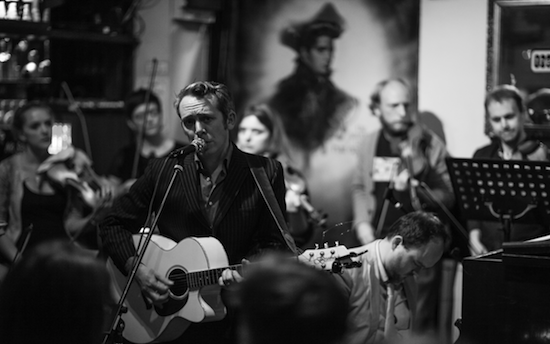
‘Blackberries’ from the new record is your most political lyric.
MG: Yeah, yeah. There was quite a lot of anxiety when I wrote that. Various people noted that it’s like an anxious parent.
Everything about it is intense. The music is frenetic.
MG: Yeah. But it’s blackberries. I think it was just ‘write something with less chords’ [laughs]. I like that song because I don’t know where it came from. It just came out fully formed.
Really? Cause it seems like you had something specific you wanted to say, this rant against the state of the nation.
MG: Yeah, well I think it’s about that alienation, separation from visceral, tangible reality. My kids have been born into this world which is about exchange language, not firsthand experience. The world I grew up in was… tangible. And I think that affects your experience of yourself, others, empathy, and connection. There’s that cartoon in Viz, about the right-on parents. I try to get my kids to do as many real things as we can. There’s a definite shift in the national psyche, the way we experience life. It’s not a political thing. We can’t wait for Labour to come and sort it out. Obviously as a parent you worry far too much, and you’ll be alright. But then you think, no, you can’t just think it’s going to be alright, you’ve got to do something. Make Blackberry Crumble For Change [laughs].
Let’s talk about ‘Curtains of Zagra’. What is ‘Zagra’?
MG: I can tell you that there’s a very humble mountain village in Spain that I went to where they have curtains instead of doors. It’s not touristy and it hasn’t become Anglicised. And I felt, wow, this is such a rich place. It’s like real life here but heightened. The people who live here are humble. There was a big man-made lake in the desert that we went to, like in the song. And I guess things coalign and come together. Meaning? I couldn’t tell you what the meaning is. But I think the meaning is that there is a meaning [laughs]. There’s a richness.
Martin Pickles and I spent many hours just talking about ideas for the video. It was such a privilege to work in that way rather than make a pop promo. The funny thing is that one day we really did both turn up with this idea that it can’t just be about random symbols, it’s got to have a plot. And that’s when it all came together. The plot of going into the underworld and emerging with the magic amulet, which in this case is a moustache. I was a little bit uneasy about this [laughs], but it works.
I often speak of backwards causality: that through process and making and doing you cast your ideas ahead of you and work your way towards them. Well, that day Martin found a plastic moustache on the pavement. And then when he finished the video he gave me the moustache. I should probably incorporate it into a piece of art. I don’t want to make it sound more serious than it is, but making that long song together as a band was a bit like us all going into this underworld. We could’ve just gone on the guided tour version, but we decided to plough on in and see what happened.
We were talking about Star Wars before, and that is based on Joseph Campbell’s Hero With A Thousand Faces. Campbell’s theory that there is one story, that something happens to take the hero out of his usual realm, he encounters difficulty, there’s a decisive victory and he returns with boons for the rest of humankind. I really like listening to Campbell’s lectures. He talks about symbols. It rattles my cage when people talk about symbols as if this means this and that means that. I think there are instances when that is useful, but symbols are things from within us. Like Richard Dawkins talks about ‘the God delusion’, and that upsets me [laughs], because they are things within us whether we like it or not, whether you think it’s supernatural or not. This thing about God, the symbol becomes outside of us, and that’s what makes us neurotic. Because we are separate from it. We’re alienated and confused because it’s a thing that’s in us, and we explain things in us as if they’re DNA. That’s a finite understanding, but what we’re talking about is not finite. It can’t be understood in those terms. Campbell says, for a start, that the idea within our psyche is that God is a woman, and when it’s taken outside of us, it’s turned into a man. So we end up having to spend lots of money seeing psychiatrists because we know something’s wrong but we can’t quite work out what it is [laughs].
Does this tie into the lyrics of ‘My Heroine’ at all? With your ‘…and pay for my therapy’ line …
MG: Not overtly. ‘My Heroine’ is probably more Freudian. I was reading about how Jung says with Freud everything is about sexuality, that’s the primal drive. And Jung says actually there are other drives. The psyche is part of that, and to distill everything to sexuality is just making a subset of the whole thing. He says if you don’t sort your psyche out, instead of broadening your horizons and thinking ‘oh, I can do these other things, express my personality in other ways’, you will become infantile in your sexuality. There’s a brilliant phrase – ‘incest with the past, incest with the future’. Jung talks about how original sin is about not being able to escape the family realm – because everything goes back to that – unless you free your psyche. So ‘My Heroine’ is probably more about that. Infantile sexuality. [laughs]
Getting back to symbols, the moment you talk about symbols in words, you’re into the realm of exchange language. Which is another thing that rattles my cage [laughs]. It’s like a fall from grace because it ceases to be the thing. That’s probably why I was obsessed, and still am, with ‘wonders never cease’. Reverie and meaning in life that isn’t word-based. In Karl Ove Knausgaard’s My Struggle he talks about how life as a kid has meaning, and then the more you grow up and the more life is classified, the less meaning there is. That’s confusing to people because we think meaning is ‘this means that’ and ‘that means that’ and ‘that plus that is that’, whereas as a kid meaning is just reverie, the dew on the grass, the bracken as you wander down to the river, or… anything. Just looking, it’s a way of being, I guess.
When you say it like that it sounds like your boring English teacher at school, yeah, shut up. But then when it actually happens, it’s… different, that feeling. That song ‘Wonders Never Cease’ is about the thin line between total joy and neurosis [laughs]. With some of the lyrics on Blood & Brambles, I really did want to flirt with, not madness, but something I don’t quite get, something that’s quite unfathomable and dark, and go there.
I discovered Rimbaud’s A Season In Hell about the time I was pulling the threads of the album together. I found that sense of plummeting into a vortex of personal paradox reassuring, in the sense that I recognised it as the tone I had been reaching for. It’s the wonder of life buffering against the agonies of man’s puffed-upness. I loved this quote from Rimbaud – "man… proves to himself the obvious, puffs himself up with the pleasure of reiterating those proofs and can live in no other way!" My copy has an intro by Patti Smith, and I had also begun to find a connection with that more direct method of songwriting.
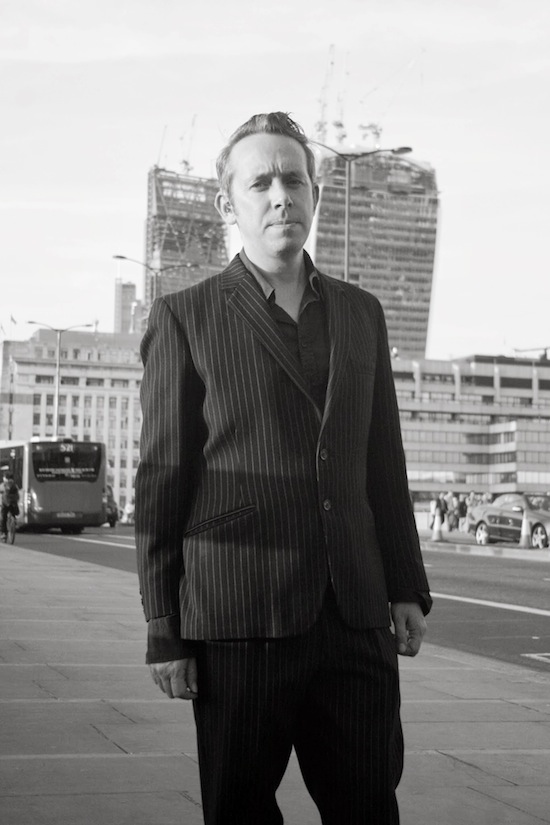
‘Rocks Back From The Moon’ hints in the lyrics at your car accident a few years ago.
MG: It does. ‘Turn For The Worse’ was a poem that I wrote when the helicopter crashed in Battersea. I saw it like it was mythic. Poems are basically when two ideas come together. With that one it was the skyline in London and how that’s central to the economy and exchange value, and then the tragedy of this event which would not have happened if we didn’t have such a strange economy that required people to be ferried in a helicopter. And I mythologised that. In the poem a winged horse is dead on the tarmac and with my car accident, for me, I have this magical realm of wonder and light, and it’s a good thing that I have it.
This van had robbed Tower Mint in Camberwell. And I just happened to be the car he drove into that stopped him. It’s a funny thing to happen to me to have a car crash with a van with two tons of gold spilled all over the road. And it all became immediately cinematic when like five seconds after it happened someone came and put me in a neckbrace. Then half an hour later another ambulance crew came and one of them said ‘you’re not meant to move, but if you can just look over my shoulder there’s lots of gold coins on the road’… and there were.
I really quickly made it into a mythological weird story, and I didn’t have to try very hard to do that, because it was already quite a magical, strange thing. But it’s not necessarily the best thing to do in terms of processing it. I don’t know [laughs] maybe it is, who knows? Still coming to terms with it.
It was very Kafka-esque. I was on this spinal board and treated as if I was potentially paralysed. Hours later, just as I was coming out of the x-ray, the nurse whispered ‘do you feel paralysed?’ [laughs]. I was going ‘I don’t know, I don’t think I am but I’ve been told not to move’. It also brought me into full-on contact with authority, exchange culture, and compartmentalisation. I had to encounter these in a very intense way because everything, when you’ve had a car crash, is about form filling and making everything classified. There’s a lack of responsibility when we modularise life – you’re this department, you’re that department, no one takes responsibility. So I wrote this little story in the same vein as Plato’s Cave, a dialogue. It’s all about imagining this man who was in a car, and all he could do was look ahead through the screen, and he would think that was reality cause Plato’s Cave is about seeing life as a two-dimensional thing. And then suddenly realising it’s not, it’s 360 degrees, and tactile. It all made me think about stuff quite hard.
Besides ‘Rocks Back From The Moon’, I also wrote ‘Blackberries’ not long after this. ‘Blackberries’ is about how it’s never been so apparent how our environment – as in the invisible culture of economics and alienation – is everywhere, and what do we do to make this good. I don’t want to oversimplify that lyric, but there’s a bit of that in there. Maybe we can dance our way out.
Shortly before this you had started posting free demos of songs in various stages of completion on Corporate Records as Demonstration Songs. There’s early versions of ‘Sometimes’ and ‘My Heroine’ on there.
MG: I think my idea was always to just show things in process. To let the process be visible. I was reading a book on how to write stories that said that you’ve got to think about your character’s superobjective. So I was thinking ‘shit, what’s mine?’ [laughs] Is it just to be as creative as possible? And share that. I think that motivated me for a long time. Like, I’ll do a painting or write a song and I just want to share it, and I guess the internet is good for that. But then I read Jaron Lanier’s You Are Not A Gadget and he’s saying, yeah, that’s good, but what’s happened is that we’re now providing the content for someone else to make money. Which is what’s so good about Corporate Records. More people should use Corporate, it’s incredible that they’ve managed that.
And this morphed into The Civilised Scene.
MG: The Civilised Scene was beginning around the time of the accident. I think I needed to be surrounded by lots of nice musicians. It was my way of returning to the world.
They were all nice people that I’d met as Mr. Solo. Nathan Thomas, Mr. Wolf, on French horn was the first one. And Arec Koundarjian was in Glam Chops with me. They are super proper musicians. Simon Love. Amazing. He’s a great songwriter and filmmaker. Simon Breed is an amazing artist in his own right. We met at a gig in the Oasis Church in Waterloo and eventually started playing together. With being Mister Solo back then, everything felt kaleidoscopic. The facade of the church is a classic piece of concrete psychedelia which somehow helped create a feeling of interconnected psychic activity. It’s also where I met Rob ‘Voluntary Butler Scheme’ Jones who is like me – a cosmic realist. It was whilst recording ‘Moth In The Flame’ with Rob that the phrase ‘civilised scene’ emerged. It was sheer joy. Mac was one of the final pieces in the jigsaw. Simon Breed introduced me to him. A great bass player, something that other guitarists notice. And Ben Handisides, Handy Sides, is an amazing drummer. He really did hold us all together when we were recording.
The desire to play with a band again is threefold. It’s partly wanting to make records, be in a band in a civilised way, which I guess I’ve always done. I’ve been lucky enough, Devant was very civilised, cause we weren’t ever trying to be a band, we were just a bunch of creative misfits who enjoyed making stuff up. So there was that. And when I was in the studio with Rob ‘Voluntary Butler Scheme’ Jones, he would always slightly tease me about how I wear a cardigan. Cozy, isn’t it? [laughs] There’s a bit of me where my superobjective is coziness. But I’m probably fighting that all the time.
There’s that, but also in the lyrics to the album there’s a lot about civilisation and enlightenment and how it’s a poisoned chalice, isn’t it? The more enlightened society becomes, the more civilised we become, the more alienated we are from each other. It’s like, this is all very separate, isn’t it? Things become compartmentalised. And exchange value is called civilisation. It makes it work, but it also makes it fracture. This is something that interests me, but the lyrics aren’t trying to be didactic or anything. Cause I do value the unconscious element of writing. And that to me is political because it’s not valued. It’s part of who we are. And because it’s not seen as rational and something that can be classified… But that’s the thing about Bob Dylan, his lyrics have lots of unconscious stuff in there. Critics of Bob Dylan go ‘oh yeah, he’s just singing random bollocks and then there are some bits that make sense’, but I think there’s a richness in there.
Do you think The Civilised Scene differs much from your previous work?
MG: It’s one thing showing your process, and I like that aesthetic. That’s something that I really like in other people’s music, being able to hear how they’ve done the record and the loose ends. But with this one I thought about how a lot of Devant fans really like our first album, and that first album is crafted. It stems from spontaneity and intuitive playing but the finished record is quite crafted. So I thought, let’s make something quite crafted, that has a richness and density of sound. That’s what I was trying to do with Blood & Brambles. Also to capture the musicians together. Because we’ll do gigs and I’ll think ‘fuck, this is a massive sound, we’ve got to record this’ [laughs].
Tell me about recording the album.
MG: Not only did we record at Lynchmob with Max Heyes but Dave Allen produced. Dave, as you may know, produced a great deal of The Cure’s output. Dave has Conny Plank’s mixing desk at Club Ralph where we mixed the album. He took a van to Germany to rescue it. Working with Dave was a pleasure because he’s very creative, charming, and a chemist to boot. I’ve just recorded a version of ‘The Love Song of J Alfred Prufrock’ with him using his old Jupiter 8, The Human League’s synth of choice. This was thrilling because Dave had been the engineer on Dare. He didn’t seem that impressed when I told him that ‘Hard Times’ was the first cover I learned to play live. Incidentally, Robert Smith’s brother-in-law was the vocalist then, not me. Backwards causality.
Mikey Georgeson & The Civilised Scene’s Blood & Brambles is out now on pop-Z Records.
Georgeson hosts one of his Backwerdz Causality Songwriting Workshops at Supernormal Festival, which runs from August 8th-10th in Braziers Park, Oxfordshire. For more information and tickets, click here to visit the Supernormal website.

